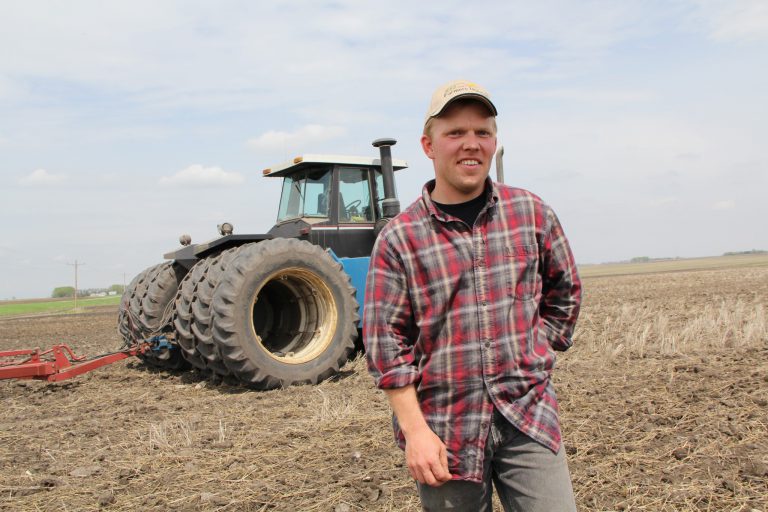
Agricultural subjects are now the fastest growing at UK universities, according to UK environment minister Elizabeth Truss.
There are now a total 19,000 students studying agriculture and related fields at UK institutions, a 4.6 percent increase on figures from last year.
In a speech to delegates at the annual National Farmers’ Union Conference this year, Truss noted that British farmers have faced a particularly tough year, with world demand hit by slowing Chinese growth and the continuing Russian import ban, as well as the highest wheat yields on British farms for 25 years with prices at an all-time low.
Why farming is the fastest growing university subject – in pictures: Enrolment to agriculture courses is on th… https://t.co/ZjmLYOwGur
— Samedaysessay (@SamedayessayCo) March 31, 2016
But Truss also claimed that new talent, innovation and science are rejuvenating the British farming industry, and heightened investments are opening fresh opportunities in the global agricultural marketplace.
“Action in all these areas and confidence in the future are at the heart of the 25-year plan for food and farming we will be publishing shortly,” said Truss.
“It will detail how we will attract even more skilled people to the industry, build the British brand and increase exports. And it will give farmers the tools to improve productivity and competitiveness so the future is sustainable, profitable and world-leading.”
Agricultural degree is a popular choice with students #education https://t.co/bemNTzdCb8
— Smarter Reach (@SmarterReach) March 31, 2016
Britain is renowned around the world for the quality and global impact of its agricultural research, with ground-breaking industry breakthroughs earning it a reputation as a world leader in farming. Because of this, the British government is doubling its investment in the Department for Environment, Food and Rural Affairs (DEFRA) to £130 million.
According to Truss, the money will go towards developing research centres for livestock, crop health, and data and precision engineering.
This significant government investment means there has never been a better time to study agricultural subjects at a UK university, and a considerable rise in applications for agriculturally-based disciplines means the British industry is rife with ambition and opportunity.
Anyone in #agriculture know any possible sources of grants, scholarships or funding for #postgraduate students in the UK? #helpfundtim
— Tim Adams (@TimbleAdams) March 28, 2016
Growth at the Royal Agricultural University in Cirencester is largely being driven by a 44 percent increase in female applicants, according to Truss. “Nationally, we are seeing more and more women come into the industry. By opening itself to the widest pool of people, this great industry is harnessing all the available talent,” she said.
There are currently 1,000 apprentices in farming and 2,100 in horticulture at UK institutions, and part of the government’s 25-year plan is to treble the number of agricultural apprentices in the UK by 2020. On top of this, a new government levy due to be implemented in April 2017 will mark the greatest apprenticeship funding strategy UK industry has ever seen.
The focus on developing the UK’s pool of talent in agriculture means students from all over the world are flocking to the UK’s leading farming institutions, and with exciting plans for future development backed by government funding, Joe Parry- named agricultural student of the year at the British Farming Awards 2015 – says he is hardly surprised.
5 students figured out how indigenous plants can help farming: https://t.co/g0G33DSNFH
Photo: Rido pic.twitter.com/8H88g6owNK— Greenpeace Africa (@Greenpeaceafric) March 29, 2016
“As a farming graduate, this sudden growth doesn’t surprise me. I studied at Harper Adams University (HAU), which specialises in agri-food and rural studies. In 2013-14, 96% of students who graduated from HAU and its associated colleges were employed or in education six months after completing their course,” he wrote for The Guardian.
“You may have thought a degree in agriculture is solely designed for farmers. But the degree is actually extremely diverse. Graduates who don’t go on to farms are employed by food retailers and suppliers. They can go on to work in research and technology, consultancy, education, marketing or the media.
“There are many challenges facing today’s farmers…But, to my mind, these challenges provide opportunities. We need to ensure that young people are encouraged to enter the sector – and they need to be provided with the means and the knowledge to do so.”
Image via Pixabay.
Liked this? Then you’ll love these…
IB students out-perform in race for top UK university placements
Are degree apprenticeships key to filling UK industry skills gaps?







